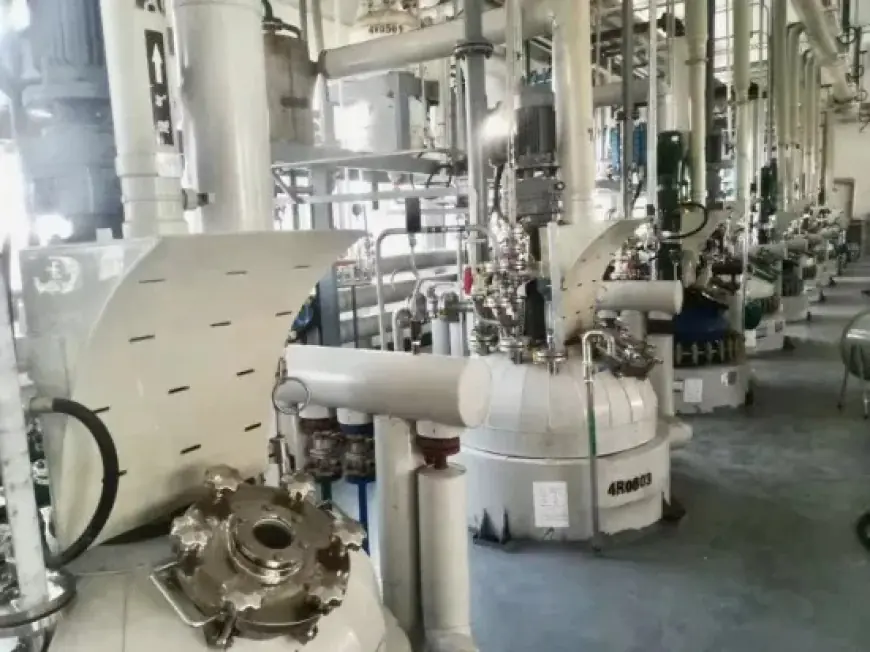Zinc Chloride Production Cost Analysis 2025: Investment Opportunities
The zinc chloride production cost analysis offers detailed insights into cost structures and economic feasibility, helping stakeholders make informed decisions.

Zinc chloride is a white, crystalline chemical compound with the formula ZnCl₂, widely used across various industrial applications due to its versatile chemical properties. It is highly soluble in water and exhibits strong hygroscopic characteristics, readily absorbing moisture from the air. Commonly produced through the reaction of zinc metal with hydrochloric acid, zinc chloride functions as a catalyst, dehydrating agent, and fluxing agent in processes such as galvanizing, chemical synthesis, and textile processing. In the metallurgical industry, it plays a key role in flux formulations for soldering and welding by cleaning metal surfaces and promoting adhesion. Additionally, zinc chloride is utilized in the production of battery electrolytes, wood preservatives, and disinfectants. Its ability to dissolve cellulose also makes it valuable in the manufacture of rayon and other synthetic fibers. Due to its corrosive nature and toxicity in high concentrations, careful handling and appropriate safety measures are essential during its storage and application.
Setting up a zinc chloride production plant involves a series of strategic steps, beginning with site selection, raw material sourcing, and compliance with environmental and safety regulations. The core production process typically includes the reaction of high-purity zinc metal or zinc oxide with hydrochloric acid in a controlled environment to produce zinc chloride and hydrogen gas. The plant design must incorporate corrosion-resistant materials, effective gas scrubbing systems, and efficient crystallization or evaporation units to obtain zinc chloride in the desired form—either anhydrous or in solution. Essential infrastructure includes storage tanks for raw materials, reactors, filtration units, drying systems, and packaging lines. Adequate wastewater treatment and emission control systems are also critical to meet regulatory standards. Additionally, logistics for raw material supply and finished product distribution must be integrated into the operational framework. A well-planned setup ensures cost-effective production while maintaining product quality, workplace safety, and environmental sustainability.
IMARC’s new report titled “Zinc Chloride Production Cost Analysis 2025: Industry Trends, Plant Setup, Machinery, Raw Materials, Investment Opportunities, Cost and Revenue” provides a comprehensive roadmap for setting up a zinc chloride production plant. The study encompasses all the essential information needed to enter the zinc chloride industry, including capital investment, operating costs, raw material requirements, and profit projections. The zinc chloride production cost analysis offers detailed insights into cost structures and economic feasibility, helping stakeholders make informed decisions. It is a valuable resource for entrepreneurs, investors, researchers, consultants, business strategists, and anyone with an interest or stake in the zinc chloride sector.
Request for a Sample Report: https://www.imarcgroup.com/zinc-chloride-manufacturing-plant-project-report/requestsample
Key factors for setting up a zinc chloride production plant:
- Market Research
The zinc chloride market is primarily driven by its diverse industrial applications across sectors such as metallurgy, chemicals, electronics, and textiles. Growing demand for galvanizing processes in the automotive and construction industries significantly contributes to market expansion, as zinc chloride plays a key role in metal surface treatment and fluxing. Additionally, the compound's use in the manufacture of dry cell batteries supports market growth, particularly with increasing energy storage needs and the proliferation of portable electronic devices. The textile industry's reliance on zinc chloride for fabric processing and the chemical industry's demand for it in catalyst and dehydrating agent applications further boost consumption. Moreover, the rising use of wood preservatives and flame retardants in construction and furniture manufacturing enhances demand. Regulatory pressures for improved product performance and the shift toward high-purity chemicals are also encouraging technological advancements in zinc chloride production, fostering growth opportunities across both developed and emerging markets.
The report offers an exhaustive overview of the global zinc chloride industry, including a detailed breakdown by segments and regions within the sector. It also includes in-depth analyses of prices involved, market trends and historical data and forecast.
- Market Forecast
- Price Analysis
- Market Breakup by Region
- Market Breakup by Segment
- Market Trends
- Planning and Designing
A detailed and up-to-date business plan is indispensable for mapping out the steps to establish and operate a zinc chloride production facility. This report offers in-depth details about the process flow and the various unit operations involved in a zinc chloride production plant.
- Technical Tests
- Quality Assurance Criteria
- Mass Balance and Raw Material Requirements
- Unit Operations Involved
- Product Overview
- Legal and Regulatory Compliance
Understanding and complying with the intricate framework of business laws and regulations is a vital aspect of establishing a zinc chloride production facility. This requires a detailed knowledge of legal obligations, such as labor laws, environmental standards, tax policies, and industry-specific regulations.
- Plant Requirements and Costs
The report offers a detailed location analysis, including insights into land selection, key criteria, location importance, environmental considerations, and associated costs for establishing a zinc chloride production facility. It also provides information on plant layout and the factors that impact its design.
- Human Resource Requirements and Costs
- Utility Requirements and Costs
- Transportation Requirements and Costs
- Packaging Requirements and Costs
- Raw Material Requirements and Costs
- Machinery Requirements and Costs
- Plant Layout
- Land, Location and Site Development
- Hiring and Training
Effective workforce planning and recruitment strategies are critical for assembling a skilled and efficient team to manage a zinc chloride production plant. This process includes identifying the specific skills and qualifications needed for different roles and anticipating future staffing requirements based on production goals and business expansion.
- Developing Health and Safety Protocols
- Implementing Training Programs for Employees
- Complying with Labor Laws and Regulations
- Supply Chain Management
Building strong partnerships with suppliers and vendors is crucial to maintaining a dependable and cost-efficient supply chain. This requires choosing partners who can reliably deliver high-quality raw materials and components at competitive rates.
- Planning Logistics and Transportation Networks
- Implementing Efficient Inventory Management Systems
Ask Analyst for Customized Report: https://www.imarcgroup.com/request?type=report&id=9825&flag=C
- Project Economics
This entails a thorough analysis of the costs associated with a zinc chloride production plant, covering capital expenditure (CapEx), operating expenditure (OpEx), income forecasts, taxation, depreciation, liquidity, profitability, payback period, net present value (NPV), uncertainty, sensitivity assessments, etc. In addition to this, it includes an in-depth review of financial assistance options and a comprehensive list of certifications necessary for establishing the plant.
- Financial Analysis
- Profit Projections
- Taxation and Depreciation
- Revenue Projections
- Expenditure Projections
- Operating Costs
- Capital Investments
- Marketing and Distribution Strategies:
Creating a robust marketing strategy and establishing strong brand positioning are vital for building a production plant's market presence. This process includes conducting thorough market research to identify customer needs, preferences, and competitive trends.
- Identifying Distribution Channels and Sales Networks
- Leveraging Digital Marketing and E-Commerce Platforms
- Participating in Trade Shows and Industry Events
About Us:
IMARC Group is a global management consulting firm that helps the world’s most ambitious changemakers to create a lasting impact. The company excel in understanding its client’s business priorities and delivering tailored solutions that drive meaningful outcomes. We provide a comprehensive suite of market entry and expansion services. Our offerings include thorough market assessment, feasibility studies, company incorporation assistance, factory setup support, regulatory approvals and licensing navigation, branding, marketing and sales strategies, competitive landscape, and benchmarking analyses, pricing and cost research, and procurement research.
Contact Us:
IMARC Group
134 N 4th St. Brooklyn, NY 11249, USA
Email: [email protected]
Tel No:(D) +91 120 433 0800
United States: +1-631-791-1145
What's Your Reaction?
 Like
0
Like
0
 Dislike
0
Dislike
0
 Love
0
Love
0
 Funny
0
Funny
0
 Angry
0
Angry
0
 Sad
0
Sad
0
 Wow
0
Wow
0

















































